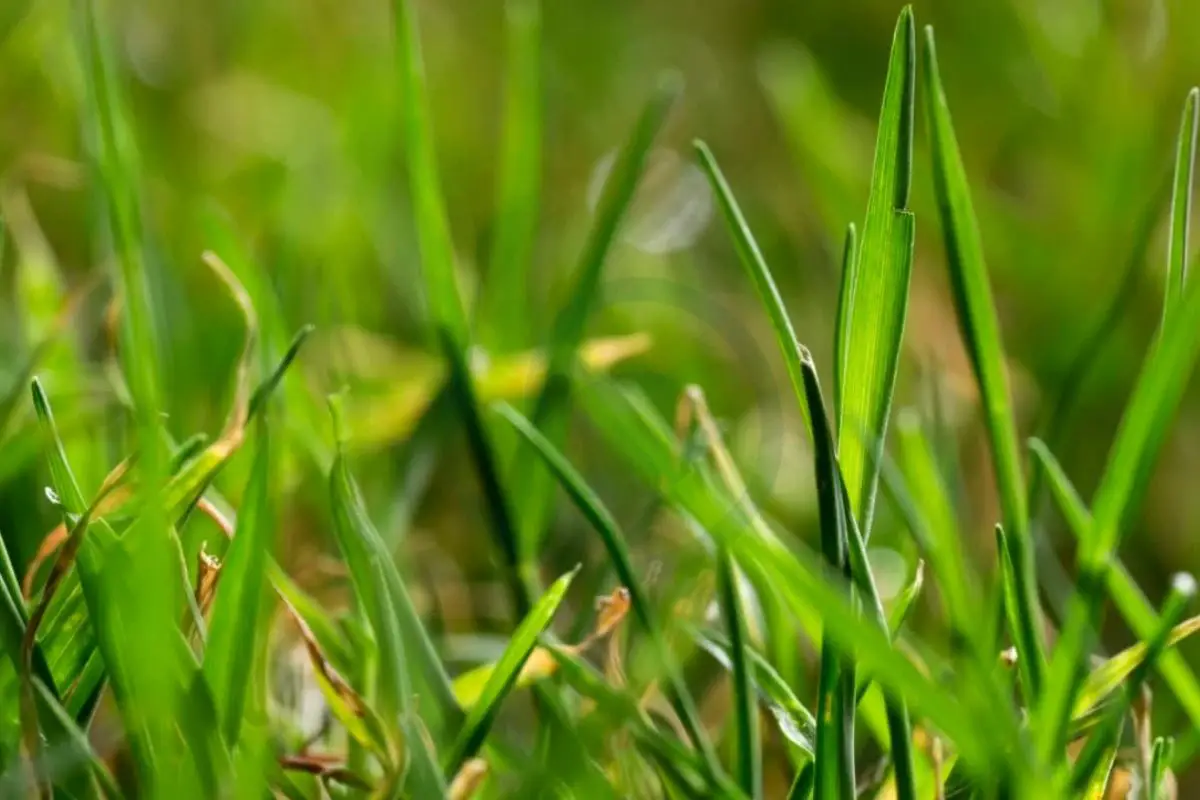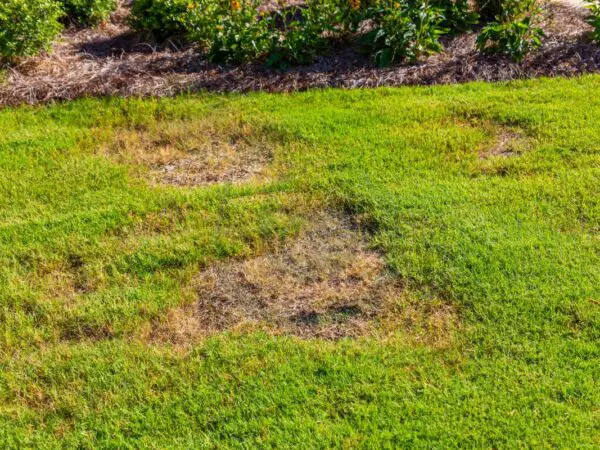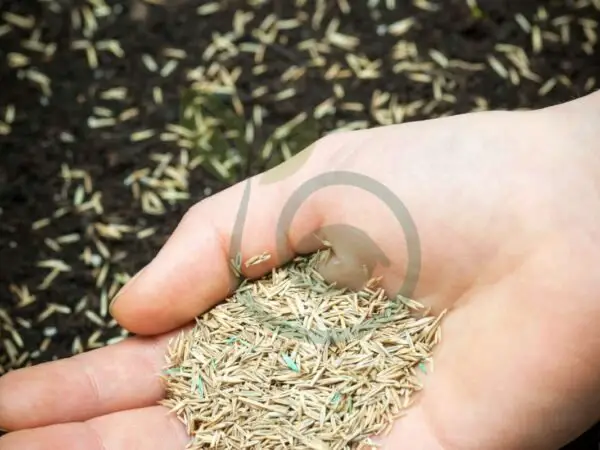
Wondering about the best time to plant Bermuda grass seed in Georgia's warm season for bermudagrass pastures? Timing is crucial for a thriving lawn. From ideal months to essential tips, get ready to elevate your lawn game and achieve that lush green carpet you've been dreaming of. Stay ahead of the curve with our expert advice on when to sow those Bermuda grass seeds for maximum growth potential.
Key Takeaways
- Identifying Best Time: Plant Bermuda grass seed in Georgia during the late spring or early summer for optimal growth.
- Preparing Lawn: Ensure the soil is well-prepared by removing debris, tilling, and leveling the surface before planting the seeds.
- Planting Bermuda Seed: Follow proper seeding techniques such as overseeding, using the right equipment, and evenly distributing the seeds.
- Repairing Bare Spots: Address bare spots promptly by reseeding, keeping the area moist, and protecting it from foot traffic.
- Weed and Fertilize Again: Regularly weed, fertilize, and apply herbicides to maintain a healthy lawn and prevent weed growth.
- Aeration Techniques: Implement aeration practices to improve soil compaction, allow better water and nutrient absorption, and promote healthier grass growth.
Identifying Best Time
Climate Requirements
Bermuda grass is chosen in Georgia for its ability to withstand drought and heat. Ensure adequate drainage and sunlight exposure for the grass to thrive optimally. This grass species prefers a tropical climate with shorter winters and longer summers.
Optimal Season
Plant Bermuda grass seeds during late spring or early summer for successful growth. Avoid planting during frost periods as it can harm the developing grass. Different regions within Georgia may have varying optimal planting times.
Georgia's Weather
Georgia's warm and moist climate provides ideal conditions for Bermuda grass growth. The grass stays green in areas without frost but goes dormant in snowy regions. Adapt your planting schedule according to Georgia's specific weather patterns.
Seed Selection
Select high-quality Bermuda grass seeds to ensure better outcomes. Look for seed varieties specifically suited to the Southeastern climate of Georgia. Consider factors like germination rate and disease resistance when choosing seeds.
Preparing Lawn
Soil Preparation
Prepare the lawn by tilling, leveling, and adding soil amendments for successful Bermuda grass seed planting. Ensure optimal soil temperature above 65°F to support seed germination. Creating a fertile environment through proper preparation encourages healthy root growth.
Weed Removal
Eliminate weeds prior to planting Bermuda grass seeds to prevent nutrient competition. Carefully use weed control herbicides to avoid damaging the newly planted grass. Regularly monitor and address any weed growth post-planting for optimal lawn health.
Fertilizing Before Planting
Apply fertilizer in late January or early February to prepare the soil for Bermuda grass seeding. Utilize a preventer plus fertilizer combination to enhance soil fertility and deter unwanted grass types. Enrich the soil with essential nutrients before seeding or sodding for robust growth.
Planting Bermuda Seed
Sowing Techniques
To ensure even distribution of Bermuda grass seeds, use proper sowing techniques. Follow recommended seeding rates for optimal growth. Utilize a seed spreader for efficient seed distribution.
Seed Coverage
When planting Bermuda grass seed in Georgia, aim for adequate coverage to promote healthy growth. Ensure the seeds are evenly spread to prevent patchy areas and encourage lush, uniform turf.
Watering After Planting
After planting Bermuda grass seed, maintain consistent moisture levels by watering regularly. Avoid overwatering as it can lead to issues like root rot. Monitor the soil moisture to support germination and establishment.
Repairing Bare Spots
Spot Identification
Identifying bare spots in your lawn is crucial to successful Bermuda grass seed planting. Look for areas with sparse grass coverage.
Spotting bare patches can be done by examining the yard for areas with little to no grass growth.
Reseeding Techniques
To effectively repair bare spots, start by loosening the soil in the identified areas using a rake.
Spread Bermuda grass seed evenly over the prepared area, ensuring proper seed-to-soil contact for successful germination.
Weed and Fertilize Again
Post-Planting Weeds
After planting bermuda grass seed in Georgia, be prepared to tackle post-planting weeds that may emerge. Regularly check for unwanted plants sprouting alongside your new grass. Pull them out manually to prevent competition for nutrients and sunlight.
Consider using herbicides specifically designed to target common weeds without harming the newly planted bermuda grass. Apply herbicides sparingly and according to the manufacturer's instructions to avoid damaging your lawn.
Fertilization Schedule
Establishing a proper fertilization schedule is crucial for the healthy growth of bermuda grass in Georgia. Begin by applying a balanced fertilizer with equal parts nitrogen, phosphorus, and potassium after the initial planting phase. This will promote strong root development and overall plant health.
As your bermuda grass matures, adjust your fertilization routine accordingly. Gradually transition from frequent applications of nitrogen-rich fertilizers during the growing season to a more moderate schedule as winter approaches. This will help prepare the grass for dormancy while ensuring it remains nourished throughout the colder months.
Aeration Techniques
Best Aeration Practices
Aerate your lawn using anhydrous ammonia to promote healthy growth and nutrient absorption. Ensure proper soil penetration.
To effectively aerate, use a core aerator for removing plugs of soil, allowing air and water to reach the roots.
Timing for Aeration
The ideal time to aerate your lawn in Georgia is during the early spring or fall months.
Watering Schedule
Initial Watering
- After planting Bermuda grass seed in Georgia, ensure the soil is moist but not waterlogged.
- Water the area lightly immediately after planting to help the seeds settle into the soil.
- Avoid overwatering during this initial phase as it can lead to seed rotting and poor germination.
Regular Water Schedule
- Once the Bermuda grass seed has sprouted, transition to a regular watering schedule.
- Water deeply but infrequently to encourage deep root growth and drought tolerance.
- Establish a routine of watering every 2-3 days, adjusting based on rainfall and temperature fluctuations.
Pest Management
Identifying Pests
Bermuda grass seed planting in Georgia can attract various pests like armyworms and grubs. Regularly inspecting the lawn for signs of these pests is crucial to prevent damage.
Some common indicators of pest presence include brown patches, chewed grass blades, and increased bird activity on the lawn. Addressing these issues promptly can help maintain a healthy Bermuda grass growth.
Natural Pest Solutions
Implementing natural pest control methods is an effective way to manage pests without harming the environment. Encouraging beneficial insects like ladybugs and lacewings can help control harmful pests naturally.
Another natural solution is using nematodes, which are microscopic organisms that feed on pest larvae in the soil. Introducing nematodes to the lawn can reduce pest populations effectively.
Chemical Controls
In cases where natural solutions are not sufficient, chemical controls may be necessary to manage severe pest infestations. Selecting pesticides specifically formulated for Bermuda grass pests is essential to minimize harm to beneficial insects.
Chemical controls should be applied according to the manufacturer's instructions and safety guidelines. It's important to wear protective gear when handling pesticides and avoid oversaturating the lawn with chemicals.
Achieving Lush Lawn
Mowing Tips
Maintaining the ideal grass height is crucial for a healthy Bermuda lawn. Regular mowing at a height of 1 to 1.5 inches helps promote growth and prevents weed invasion. Avoid cutting more than one-third of the grass blade in a single mow to prevent stress on the grass.
To ensure an even cut, sharpen your mower blades regularly. Dull blades can tear the grass instead of cleanly cutting it, leading to browning and disease susceptibility. Vary your mowing pattern each time to prevent soil compaction and encourage upright growth.
Long-Term Care
For long-term Bermuda grass care in Georgia, consider overseeding in late spring or early summer to fill in sparse areas and maintain a lush lawn. Water deeply but infrequently, ensuring about 1 inch of water per week during dry spells.
Proper fertilization is key for healthy Bermuda grass growth. Apply a balanced fertilizer with equal parts nitrogen, phosphorus, and potassium every 6-8 weeks during the growing season. Aeration is beneficial for relieving soil compaction and allowing nutrients to reach the roots effectively.
Final Remarks
In conclusion, by following the steps outlined in this guide, you can ensure that your Bermuda grass lawn thrives in Georgia. Remember to plant at the optimal time, prepare your lawn diligently, and maintain a consistent watering schedule. By repairing bare spots promptly and implementing proper weed control and fertilization techniques, you'll be on your way to achieving a lush and healthy lawn. Incorporating aeration practices and effective pest management strategies will further contribute to the vibrancy of your grass.
Now that you have the knowledge needed to cultivate a beautiful Bermuda grass lawn in Georgia, it's time to put these tips into action. Take charge of your lawn care routine, stay consistent with maintenance tasks, and enjoy the results of a flourishing outdoor space. Your dedication will not go unnoticed as you revel in the beauty of your thriving Bermuda grass lawn.
Frequently Asked Questions
When is the best time to plant Bermuda grass seed in Georgia?
Plant Bermuda grass seed in Georgia during late spring or early summer when the soil temperature consistently reaches 65-70°F. This period allows for optimal germination and establishment of the grass, leading to a lush lawn.
How should I prepare my lawn before planting Bermuda seed?
Prepare your lawn by mowing it short, dethatching if needed, and aerating to improve soil compaction. Conduct a soil test to determine nutrient needs and adjust pH levels if necessary. Clear debris and ensure good seed-to-soil contact for successful germination.
What are effective techniques for planting Bermuda grass seed?
For optimal results, evenly spread the seeds using a broadcast spreader at recommended rates. Rake lightly to cover the seeds with a thin layer of soil. Water gently immediately after planting and maintain consistent moisture until germination occurs.
How can I effectively repair bare spots in my Bermuda grass lawn?
To repair bare spots, loosen the soil in the affected area, remove any weeds or debris, and apply fresh Bermuda grass seeds. Keep the area moist until new growth appears. Regularly monitor these spots for proper establishment.
What is the importance of weed control and fertilization after planting Bermuda grass seed?
Weed control prevents unwanted competition with newly planted Bermuda grass while fertilization provides essential nutrients for healthy growth. Follow recommended schedules for weed treatments and fertilization based on your specific lawn's needs.
Image Source: Paid image from CANVA




